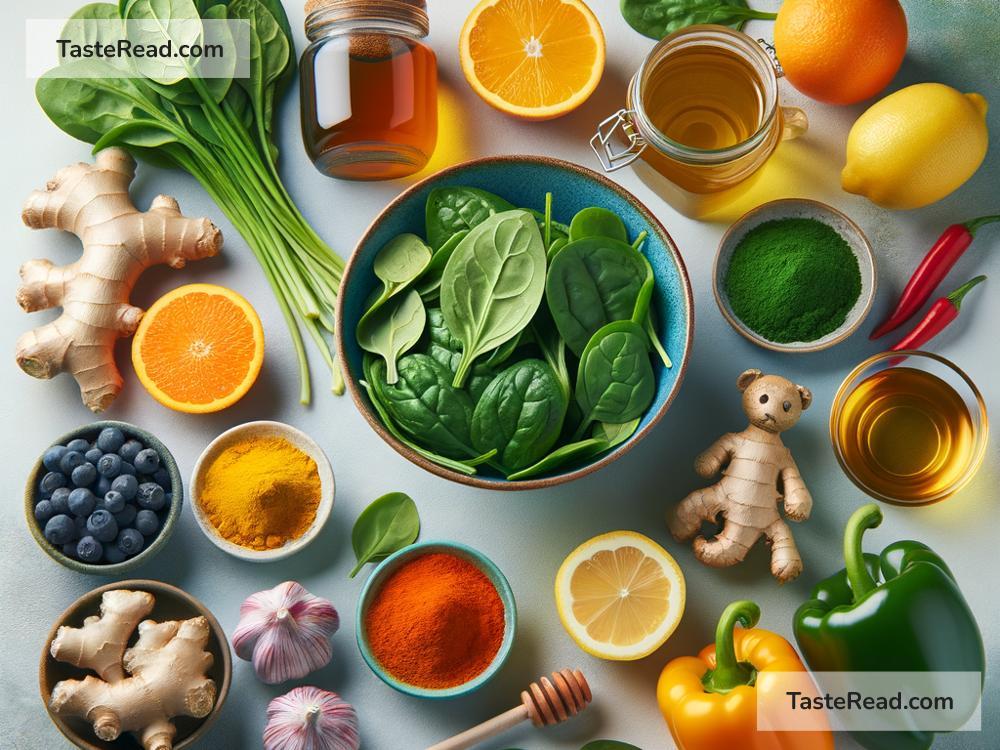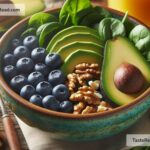Foods that Reduce the Risk of Respiratory Infections
Respiratory infections, such as colds, flu, and bronchitis, are common illnesses that can affect anyone. While maintaining proper hygiene and getting vaccinated are essential steps to prevent these infections, your diet also plays a big role in boosting your body’s defense system. Eating the right foods can strengthen your immune system and help your body fight off respiratory infections. In this article, we will explore different foods that can reduce the risk of respiratory infections.
1. The Role of Nutrition in Immunity
Your immune system is your body’s natural defense system against harmful germs, including bacteria and viruses that cause respiratory infections. To keep your immune system strong, certain nutrients are essential, such as vitamins, minerals, antioxidants, and proteins. By eating foods rich in these nutrients, you give your body the tools it needs to stay healthy and active.
2. Vitamin C-Rich Foods
Vitamin C is famous for its ability to boost immunity and fight off infections. It helps your body produce white blood cells, a key part of your immune system. Additionally, Vitamin C acts as an antioxidant, protecting your body’s cells from damage caused by free radicals.
Some foods rich in Vitamin C include:
– Oranges
– Lemons
– Kiwi
– Strawberries
– Bell Peppers
– Broccoli
Eating these foods regularly can prepare your immune system to fight respiratory infections more effectively.
3. Foods High in Vitamin D
Vitamin D helps your immune system stay balanced and reduces inflammation in your body. Studies have shown that people with low Vitamin D levels are more likely to get sick with respiratory infections. The good news is that you can get this important vitamin from your diet and sunlight.
Foods rich in Vitamin D include:
– Fatty fish like salmon, mackerel, and tuna
– Egg yolks
– Mushrooms
– Fortified foods like milk, orange juice, and cereals
If you live in a place with less sunlight, you might also consider taking a Vitamin D supplement, but consult a doctor before doing so.
4. Probiotic Foods for Gut Health
Good gut health is directly linked to a strong immune system. Probiotics are healthy bacteria that help balance your gut microbiome, which plays a role in protecting your body from infections. Foods with probiotics improve your body’s ability to fight off harmful germs, including those that can cause respiratory issues.
Probiotic-rich foods include:
– Yogurt (preferably unsweetened and with live active cultures)
– Kefir
– Sauerkraut
– Kimchi
– Miso
Adding these foods to your diet can help support your immune system and may lower your chances of getting sick.
5. Garlic and Ginger
Garlic and ginger are two powerful foods that have natural anti-inflammatory and anti-microbial properties. Garlic contains a compound called allicin, which is known to boost immune function and fight off bacteria and viruses. Ginger helps reduce inflammation in the respiratory system and can be particularly helpful during a cold or flu.
Ways to include garlic and ginger in your diet:
– Add minced garlic to soups, salads, or stir-fries.
– Make ginger tea by boiling fresh ginger slices in water and adding a bit of honey.
– Use both as flavor boosters in your cooking.
These simple additions can make a big difference to your health.
6. Foods High in Zinc
Zinc is a mineral that strengthens your immune system and helps your body heal from infections faster. Research shows that people who don’t get enough zinc are more likely to catch colds and respiratory illnesses.
Zinc-rich foods include:
– Shellfish like oysters and crab
– Pumpkin seeds
– Chickpeas
– Nuts like cashews and almonds
– Whole grains
Having a healthy amount of zinc in your diet is especially important during cold and flu season.
7. Leafy Greens and Colorful Vegetables
Vegetables like spinach, kale, carrots, and sweet potatoes are filled with antioxidants, vitamins, and minerals. They keep your immune system strong and lower inflammation, which can protect your lungs and respiratory system from infections. Beta-carotene, a nutrient found in colorful vegetables, is converted into Vitamin A, which helps protect the lining of your respiratory tract and boosts immunity.
8. Stay Hydrated
While it’s not technically a food, drinking enough water is crucial for reducing your risk of respiratory infections. Staying hydrated helps thin the mucus in your airways, making it easier for your body to clear out germs. You can also drink herbal teas, coconut water, or broths to stay hydrated while consuming immune-supporting nutrients.
Final Thoughts
The foods you eat play an important role in your overall health and your ability to fight respiratory infections. Including Vitamin C-rich fruits, Vitamin D sources, probiotics, garlic, ginger, zinc-rich foods, and vegetables in your diet can boost your immune system and help protect against illnesses. Pair a healthy diet with good hygiene practices, regular exercise, and enough sleep for a comprehensive approach to wellness.
By making small but important adjustments to your diet, you can protect yourself and your loved ones from respiratory infections and improve your overall quality of life.


